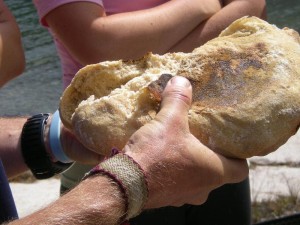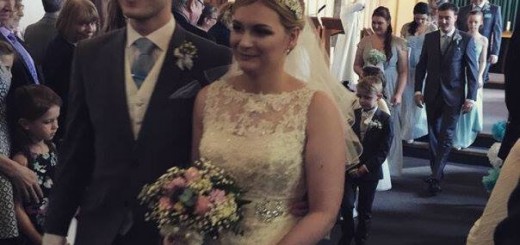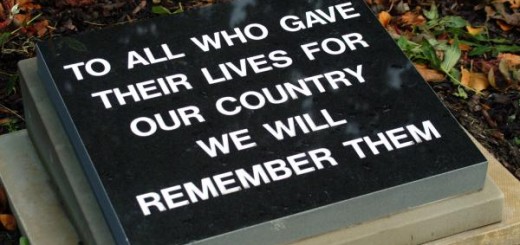How to avoid burn out……..
Jethro seems like a lovely man. We are introduced to him back in Exodus 2, when he welcomes Moses into his home and consents to Moses’ marriage to his daughter Zipporah. He is a priest of Midian. a Midianite – not an Israelite or an Egyptian – and yet he seems to have no problem with Moses settling down in his land and family. I remember the first time my Dad met Andy – I’d already told Andy to play nice and avoid politics, but all it took to put my Dad off was the earring and the fact that Andy admitted to reading the Guardian!
In chapter 4, when Moses asks if he can leave to see how his people in Egypt are doing,
Jethro said, “Go, and I wish you well.” Exodus 4:18
The next we hear of Jethro is here in chapter 18 –
Now Jethro, the priest of Midian and father-in-law of Moses, heard of everything God had done for Moses and for his people Israel, and how the Lord had brought Israel out of Egypt. Exodus 18:1
When Moses sends his wife and sons back home (no explanation, no back story…..a bit weird…….), Jethro takes them back into his home. But it doesn’t stop there. He travels back to Moses with Zipporah and the boys to find out what the problem is. No need for Jeremy Kyle here. No public slating of his flaky son-in-law on Facebook. No slamming the front door and saying Moses will never cross his threshold again. As I said, Jethro seems like a lovely man.
In true man fashion, Jethro and Moses talk about all sorts of other stuff before getting down to the matter in hand – in fact, the matter in hand does not seem to be addressed head on at all.
Jethro was delighted to hear about all the good things the Lord had done for Israel in rescuing them from the hand of the Egyptians. Exodus 18:9
‘Now I know that the Lord is greater than all other gods, for he did this to those who had treated Israel arrogantly.’ Exodus 18:11
This ties in with the ‘Then you will know that I am God’ theme running through this book. The one true God is standing out among all the other gods as the one that can rescue, that does care and that can really make a difference to life.
 After offering sacrifices to the God of Israel, Jethro sits with Aaron and all the elders of Israel ‘to eat bread in the presence of God.’ An early act of communion (with a small c but communion nevertheless). They eat together and God is there. A simple meal, nothing fancy – no three-tiered cake plates or fancy cuisine or matching plates. Just bread, people and God. I love meals like this. I love having people round for meals. Sharing food around a table has its own special intimacy. When my soon-to-be daughter-in-law first got to know us, she was only fourteen and pretty overwhelmed by the size and noise of our family. She found eating with us around the table really difficult (in fact, she found eating in front of anyone difficult). Now we sit for hours after a meal chatting and ‘communing’ – and now she has her own home and we all sat round their table enjoying their good food and wine when we went to visit in the summer – special times.
After offering sacrifices to the God of Israel, Jethro sits with Aaron and all the elders of Israel ‘to eat bread in the presence of God.’ An early act of communion (with a small c but communion nevertheless). They eat together and God is there. A simple meal, nothing fancy – no three-tiered cake plates or fancy cuisine or matching plates. Just bread, people and God. I love meals like this. I love having people round for meals. Sharing food around a table has its own special intimacy. When my soon-to-be daughter-in-law first got to know us, she was only fourteen and pretty overwhelmed by the size and noise of our family. She found eating with us around the table really difficult (in fact, she found eating in front of anyone difficult). Now we sit for hours after a meal chatting and ‘communing’ – and now she has her own home and we all sat round their table enjoying their good food and wine when we went to visit in the summer – special times.
Our church prides itself on ‘running on its stomach’. Meals have always been an important part of our church life. We now have cafe church twice a month, where we sit round tables enjoying bacon sandwiches, toast and croissants as the service unfolds before our eyes. This approach has worked. Visitors love the informal atmosphere and the bonds created over sharing breakfast together. Many local young families join us regularly to ‘commune’ over shared bread (buns filled with bacon!).
The next day, Jethro sees how Moses has become a judge and that people are coming to him from morning to evening to seek God’s will. He has no time for his family or to take care of himself. This is not good.
Moses’ father-in-law replied, “What you are doing is not good. You and these people who come to you will only wear yourselves out. The work is too heavy for you; you cannot handle it alone. Listen now to me and I will give you some advice, and may God be with you. You must be the people’s representative before God and bring their disputes to him. Teach them his decrees and instructions, and show them the way they are to live and how they are to behave. But select capable men from all the people—men who fear God, trustworthy men who hate dishonest gain—and appoint them as officials over thousands, hundreds, fifties and tens. Have them serve as judges for the people at all times, but have them bring every difficult case to you; the simple cases they can decide themselves. That will make your load lighter, because they will share it with you. If you do this and God so commands, you will be able to stand the strain, and all these people will go home satisfied.” Exodus 18:17-23
 Jethro is warning against burnout – when a job we take on (often within the church) expands to fill our whole lives, so that we have no time for our families or to take care of ourselves. We see it happening all the time. We allow it to happen to others because we are happy that the work is getting done. We allow it to happen to ourselves because feeling useful and significant and indispensable feels good. Having time with the family feels selfish. Having time to care for ourselves feels self-indulgent. It takes enormous strength to step back and say ‘enough is enough’ before we damage our mental and physical health. We all sometimes need a Jethro in our lives.
Jethro is warning against burnout – when a job we take on (often within the church) expands to fill our whole lives, so that we have no time for our families or to take care of ourselves. We see it happening all the time. We allow it to happen to others because we are happy that the work is getting done. We allow it to happen to ourselves because feeling useful and significant and indispensable feels good. Having time with the family feels selfish. Having time to care for ourselves feels self-indulgent. It takes enormous strength to step back and say ‘enough is enough’ before we damage our mental and physical health. We all sometimes need a Jethro in our lives.
If this line – ‘The work is too heavy for you; you cannot handle it alone’ – brings a tear to your eye and touches your heart, maybe Jethro’s words are for you today.
Handling it alone sometimes seems preferable though. Delegation is risky – other people won’t do it the way you think it should be done. Trusting other people and their abilities is hard. And what if they do it better than you and end up pushing you out of your role altogether? And keeping busy – it stops you having to think about what is really going on inside that needs dealing with. Admitting weakness and asking for help often feels like admitting failure – and none of us like to be seen as a failure, do we?
We talk about ‘every member ministry’ in our church – it’s a wonderful concept but so hard to actually put into practice and fraught with tensions and issues – although there really is nothing better than to see someone growing into a new role (into your role, even) and blossoming and flourishing and gaining in confidence. It comes down to trust again – choosing people who are worthy of our trust and then finding it within ourselves to trust them and to let go.
That will make your load lighter, because they will share it with you. If you do this and God so commands, you will be able to stand the strain, and all these people will go home satisfied. Exodus 18:23
Doesn’t that sound great? Sharing the load to make it lighter so that you can carry on carrying your part of the load for longer (just had a flashback to carrying the tent – sharing the load between the two of us – from the car park to the campsite on a drizzly cold August Friday afternoon for all you ‘Greenbelters’ out there!)
Moses listened to his father-in-law and did everything he said. Exodus 18:24
Good man.
Then Moses sent his father-in-law on his way, and Jethro returned to his own country. Exodus 18:27
Notice that? Jethro returned home. Without Zipporah and her sons. He’s helped Moses find a way to make time for his family and keep them with him. Without even addressing the issue head on. Relationships matter. Families matter. We need to make time for them. We need to listen to Jethro.













